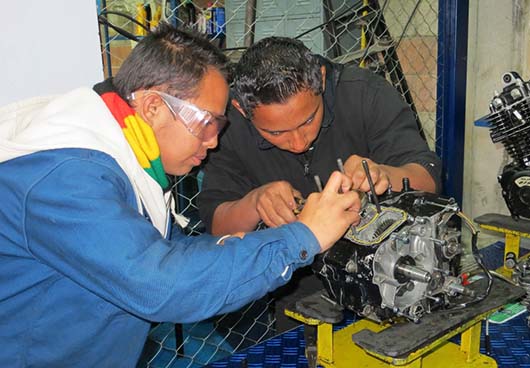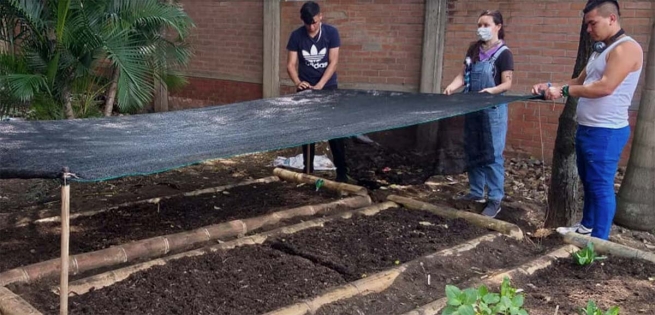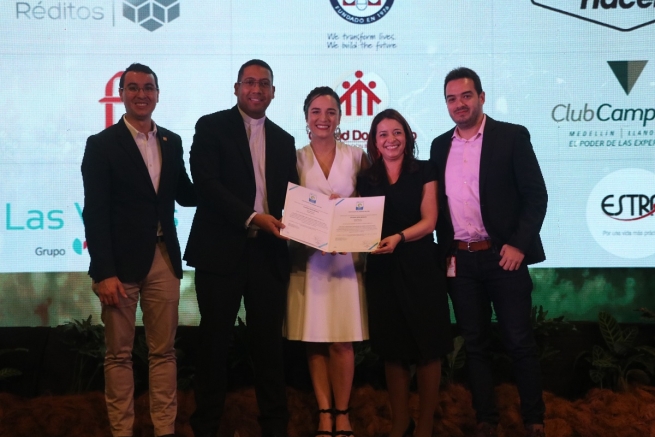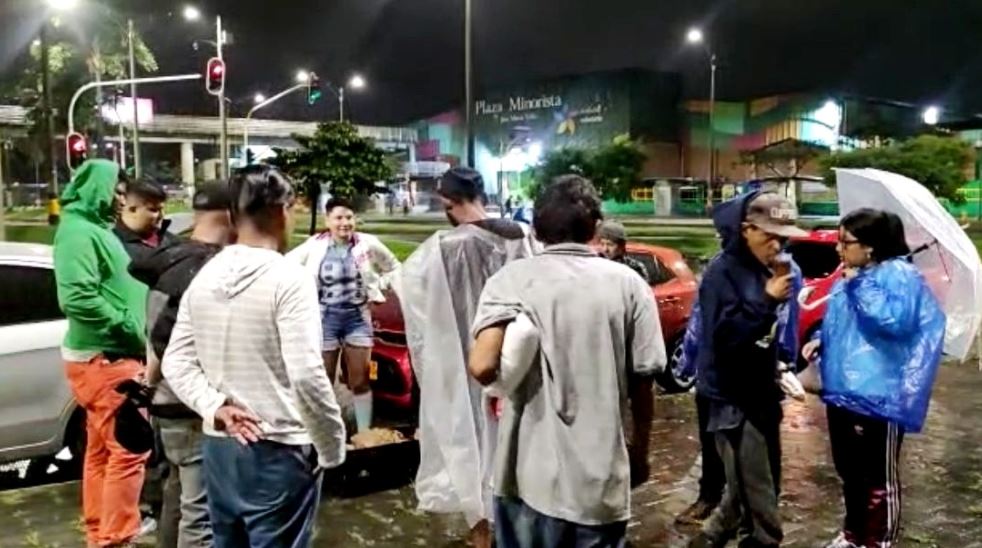COLOMBIA: New Pacto Motor Automotive Training Program Placed 98 Percent of Graduates into Automotive Work

(MissionNewswire) Close to 33 percent of Colombians live in poverty, according to the World Bank. One in five children in the country have no access to education and 800,000 children reside in refugee camps. The number of street children has reached epidemic proportions and thousands of at-risk youth have been recruited as child soldiers.
Many orphaned youth in Colombia live in poverty and have lost their parents to natural disasters, the HIV/AIDS epidemic and other diseases, war or domestic issues. Some children remain living with a single parent, struggling to survive, and are often pulled out of school to earn income for the remaining family. Other youth live in shelters or on the streets.
Neglect, discrimination and malnutrition affect orphans more often than their non-orphaned peers. Research shows that orphans are more likely to live in conditions of poverty, be forced into child labor, recruited as child soldiers and subjected to exploitation and violence. Orphaned youth are also less likely to be enrolled in school.
At the Don Bosco Center in Ciudad Bolivar, one of the most dangerous areas of Colombia’s capital city, Bogotá, Salesian missionaries provide education, skills training and social development services to poor youth. Many families living in Ciudad Bolivar came to the city to escape the armed conflict between paramilitary groups and revolutionaries operating in Colombia. Many continue to arrive in the city with little education and few chances for employment or a stable future.
More than 15 years ago, Salesian Father Jaime García recognized a need for job skill training for youth in Bogotá and expanded the Don Bosco Center to offer professional and vocational education. In addition, Salesian missionaries made connections within the local labor market to help youth transition from the classroom directly into employment.
Each year since the expansion, more than 800 youth have been accepted into professional and vocational training courses to become electricians, carpenters and mechanics. In 2010, Salesian missionaries became aware of a need for skilled labor for the automobile and transport industries while noting that youth from Ciudad Bolívar were often rejected in the employment selection process. The missionaries identified a gap between the professional needs of these industries and the lack of education in these fields for youth seeking employment.
In 2013, a new program was inaugurated at the Don Bosco Center offering a professional degree course in automotive mechanics. Named, Pacto Motor, the program was made possible thanks to the support of the Salesian organization, Via Don Bosco in Belgium and the French foundation, Saint Paul Apôtre. More than 150 youth, or 98 percent of Pacto Motor’s first graduating class, found employment after successfully completing the program.
“The Pacto Motor program at the Don Bosco Center has been a great success,” says Father Mark Hyde, executive director of Salesian Missions, the U.S development arm of the Salesians of Don Bosco. “The automotive sector has access to well-trained technical staff and youth have access to free high-quality training that leads to stable employment.”
During the 2014-2015 school year, more than 900 students are engaged in professional training courses at the Don Bosco Center. As a result of the Pacto Motor program’s success, the Colombian Ministry of Labor is using the Salesian training model to develop additional pilot projects focused on employment industries in other cities in Colombia.
###
Sources:
ANS – Colombia – The Salesians, contract for employment
World Bank – Colombia




